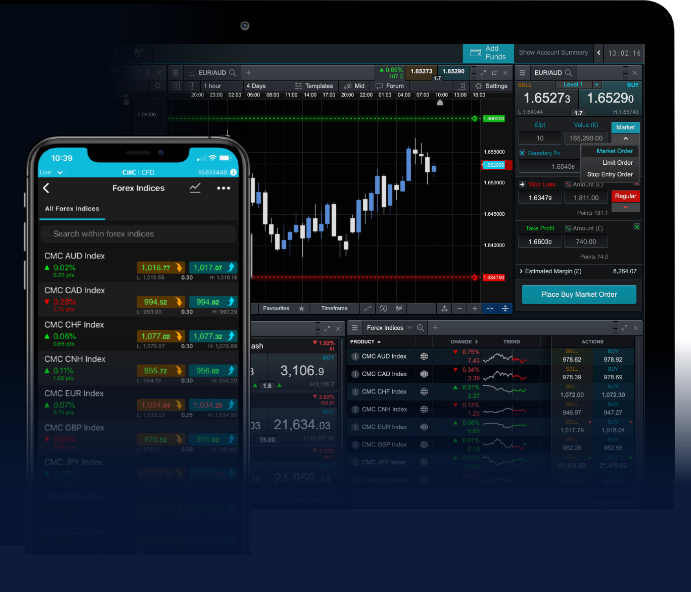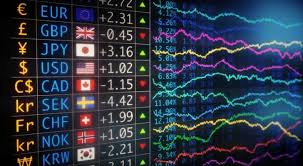
Understanding the Meaning of Forex Trading
Forex trading is a dynamic and fascinating field that allows individuals and institutions to exchange currencies and profit from fluctuations in exchange rates. In this article, we will delve into the meaning of Forex trading, explore its mechanisms, discuss its benefits, and highlight the essential role that brokers, such as forex trading meaning Argentina Brokers, play in the Forex market.
What is Forex Trading?
Forex, or foreign exchange, refers to the global marketplace for trading national currencies against one another. The Forex market is the largest and most liquid financial market in the world, with a daily trading volume exceeding $6 trillion. Unlike other financial markets, Forex operates 24 hours a day, five days a week, allowing traders to engage in currency trading at their convenience.
At its core, Forex trading involves the exchange of one currency for another, aiming to profit from changes in the exchange rates between the two currencies. Traders can buy or sell currency pairs, such as EUR/USD (euro and U.S. dollar), based on their analysis of market trends and economic indicators.
The Mechanics of Forex Trading
Forex trading is fundamentally different from stock trading. One of the most significant aspects of Forex is that it is traded in currency pairs. Each currency pair consists of a base currency and a quote currency. For example, in the currency pair EUR/USD, the euro is the base currency, and the U.S. dollar is the quote currency. When a trader buys EUR/USD, they are buying euros and selling U.S. dollars simultaneously.
How Trades are Executed
Forex trades are typically executed through a broker, who acts as an intermediary between the trader and the interbank system. When traders place an order, the broker provides access to the liquidity necessary to execute the trade. Traders can choose between different types of order executions, including market orders, limit orders, and stop-loss orders, to manage their positions effectively.
Understanding Pips and Leverage

A crucial concept in Forex trading is the “pip,” which stands for “percentage in point.” A pip is the smallest price movement in a currency pair. Most currency pairs are quoted to four decimal places, so a movement from 1.1000 to 1.1001 represents one pip.
Another essential aspect of Forex trading is leverage, which allows traders to control a larger position than their initial capital would typically allow. For instance, with a leverage of 100:1, a trader can control a $10,000 position with just $100 of their own capital. While leverage can amplify profits, it also increases the risk of losses, making risk management crucial for successful trading.
Benefits of Forex Trading
Forex trading offers several advantages that attract traders from around the world:
1. High Liquidity
The Forex market’s immense trading volume ensures high liquidity, which means that traders can enter and exit positions with minimal slippage. The ease of executing trades helps traders implement their strategies more effectively.
2. Market Accessibility
The Forex market is open 24 hours a day, allowing traders to participate in the market at any time. This accessibility appeals to both full-time traders and those who trade part-time or as a hobby.
3. Diverse Trading Opportunities
The Forex market offers a wide range of currency pairs to trade, along with varying strategies that traders can employ. From day trading to long-term investing, the diversity of trading styles allows traders to find a method that suits their preferences.

4. Low Transaction Costs
Compared to other financial markets, Forex trading generally has lower transaction costs due to tight bid-ask spreads, which makes it more economically viable for traders.
The Role of Brokers in Forex Trading
Brokers play an essential role in Forex trading by providing access to the market and the necessary tools to execute trades. They offer trading platforms, technical analysis tools, and research resources that can help traders make informed decisions.
Choosing the Right Broker
Selecting a reputable broker is critical for success in Forex trading. Factors to consider when choosing a broker include:
- Regulation: Ensure the broker is regulated by a recognized authority to enhance the safety of your funds.
- Trading Platforms: Look for user-friendly platforms that offer the necessary features for effective trading.
- Customer Support: Good customer service is vital, especially for new traders who may need assistance.
- Fees and Spreads: Understand the trading costs associated with each broker and how they may affect your profitability.
Conclusion
Forex trading is a compelling financial activity that offers significant opportunities for profit through the exchange of currencies. Understanding the meaning behind Forex trading is essential for anyone looking to enter this market. With its unique mechanics, advantages, and the role of brokers, traders can develop strategies that align with their goals and risk tolerance.
As with any form of trading, it is crucial to approach Forex with a well-thought-out plan and to continuously educate oneself about the various factors influencing currency movements. Whether you are a novice or an experienced trader, staying informed and adaptable is key to navigating the ever-changing landscape of Forex trading successfully.


